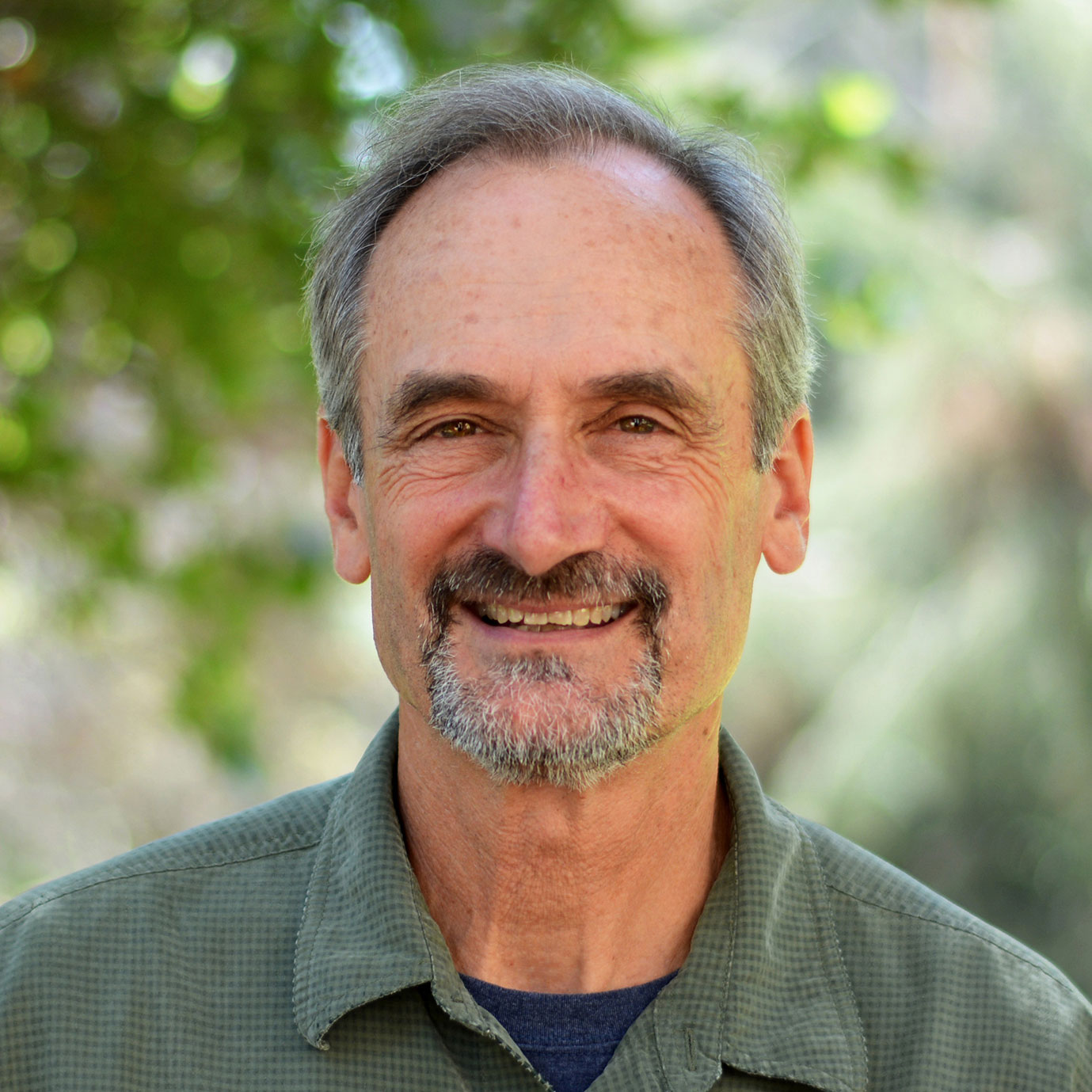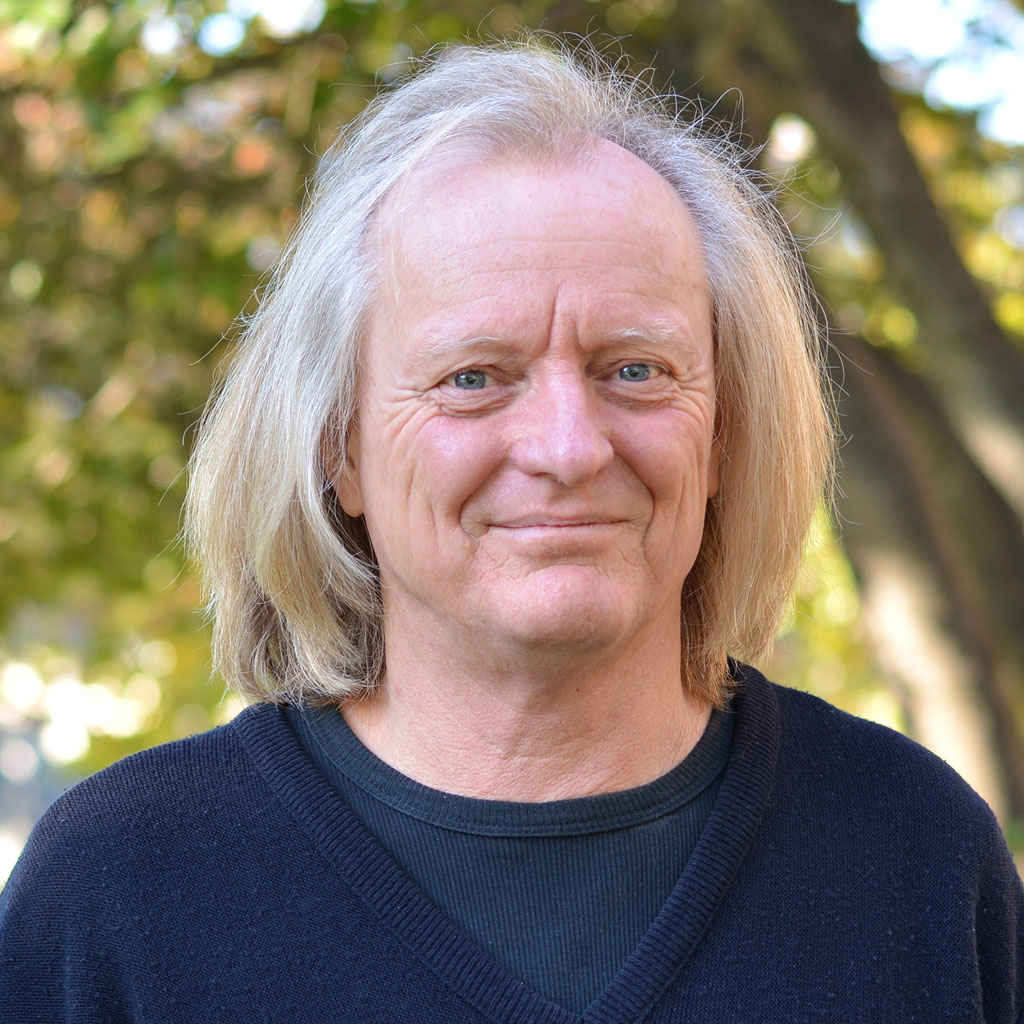Rausser College of Natural Resources congratulates the following faculty on their retirement from UC Berkeley. We thank them for their dedication to students and to their fields, and for their service to the University.

Photo by Julie Gipple.
Steve Beissinger
Professor, Environmental Science, Policy, and Management
Steve Beissinger is an ecologist and conservation biologist whose research focuses on conservation, behavior, and population biology with the goals of quantifying the influence of climate change on wildlife, managing endangered or commercially-valuable wildlife, and understanding the factors shaping species’ life histories. Beissinger has led the Museum of Vertebrate Zoology’s (MVZ) Grinnell Resurvey Project, which tracks the response of California birds and mammals to climate change and land-use change at sites originally surveyed by UC Berkeley professor Joseph Grinnell in the early 20th century. He has also studied the parental care strategies and population dynamics of a small parrot in Venezuela for 38 years; the ecology of endangered species across the U.S. and internationally; and the ecology and conservation biology of the threatened California Black Rail in the northern Sierra Nevada foothills of California.
Since joining the Berkeley faculty in 1996, Beissinger has taught courses in conservation biology, population viability, and population ecology. He held appointments in the MVZ and the Energy and Resources Group, established the Californian Cooperative Ecosystem Studies Unit (CESU) on campus, and served as founding faculty co-director of the Berkeley Institute for Parks, People, and Biodiversity. He has been recognized as a Fellow of the American Association for the Advancement of Science, the Ecological Society of America, the Institute for Advanced Study in Berlin, the California Academy of Sciences, and the American Ornithological Society (AOS), where he served as President. Beissinger received the William Brewster Award from the AOS in 2010, which recognizes the researcher with the most meritorious body of work on birds of the Western Hemisphere over the past decade.

Photo by Julie Gipple.
Richard Dodd
Professor, Environmental Science, Policy, and Management
Richard Dodd’s research focuses on the future health of forests and woodlands. Ecosystems like tidal mangrove swamps and California's oak woodlands are increasingly threatened by climate change and habitat fragmentation, challenges that have a residual effect on the diversity of organisms that depend on these ecosystems. Dodd’s research utilized molecular methods to investigate the evolutionary dynamics of populations of species and species complexes in response to past and future environmental change. He has also explored the role of hybrid events in colonization—particularly under past and future climate change—and the response of hybrids to pests and diseases.
Dodd has previously studied the genetic diversity of the Giant Sequoia, the intersection of tree hybridization and Sudden Oak Death, and genomic approaches to help sugar pine trees deal with drought and temperature stress. A member of the Berkeley faculty since 1982, Dodd has regularly taught courses on the taxonomy, growth, and structure of trees, and the consequences of environmental change on the levels and distribution of genetic diversity within species over time and space.
Photo by Elena Zhukova.
Brian Staskawicz
Professor, Plant and Microbial Biology
Brian Staskawicz, PhD ’80 plant pathology, joined Berkeley as a professor of plant and microbial biology in 1983 and currently serves as Director of Sustainable Agriculture at the Innovative Genomics Institute (IGI). A renowned plant pathologist, Staskawicz is known for his pioneering contributions to our understanding of infection strategies of plant pathogens and the immune response of plants. He and his colleagues successfully cloned the first pathogen effector gene and characterized one of the first plant NLR immune receptors. His research helped establish Arabidopsis thaliana as a model organism to study the molecular basis of microbial recognition by plants and genetically dissect defense signaling pathways. At the IGI, Staskawicz focuses on understanding the molecular basis of plant-pathogen interactions and immunity, expanding CRISPR-Cas genome editing technology in plants, and engineering disease-resistant and drought-tolerant crops for agricultural sustainability.
Throughout his career, Staskawicz has been honored by the United States Department of Agriculture, the American Phytopathological Society (APS), and several other organizations. He is a member of the National Academy of Sciences, a fellow of the APS and the American Society for Microbiology, and a foreign member of the Royal Society of London.
